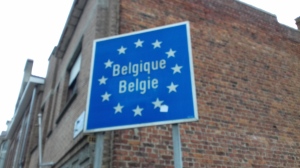9 July 2018

Enter a. caption
You’ll be unlikely to have heard anything about my second instalment. Last week, France published a biodiversity plan. Unveiled by France’s minister for ecological transition, Nicolas Hulot, it contains many measures to be taken over the next four years concerning pollination, plastics, pesticides and much more. As far as I can see, none of the main ‘quality’ newspapers has covered this in the UK. I wanted to find more about the plan, having heard about it on France Inter radio before it came out. So I phoned the press office at the French Ministry of Ecology (Ministere de la Transition Ecologique et Solidaire). Did they produce a press release on this in English, I asked? “No. We only translate press releases that are international in subject matter”, they replied. Fortunately, I am Francophone. However, what about companies, environmental NGOs and policy makers in neighbouring countries like the UK, Germany and elsewhere? Don’t they need to read it? Don’t French ecosystems influence at least the conditions in neighbouring countries, Belgium? Spain and Italy? This language barrier doesn’t just relate to biodiversity policy, which crosses borders by its very nature. It affects many, many activities in France and Francophone Africa. They don’t want to tell us, and we don’t want to know. This deficit in public information weakens international cooperation.
16 June 2018
Here’s my first story about a blank. As you might have guessed from the picture, it concerns fish. There are obvious blanks about fish, like we don’t know how many there are. They are harder to count than land animals. But that’s for another day. This blank is about a brand many on this forum will know well. They’ll probably think it’s a household name. I certainly heard of it at least ten years ago when I discovered for the first time the pleasure of eating cod, plaice and haddock. Honestly, it tasted delicious for a simple reason – I knew it had been caught sustainably. Suddenly, the fish counted.
Now here’s the blank. That fish had been supplied through the Marine Stewardship Council (MSC), the sustainable fishery organisation using a leaping blue fish symbol on packs widely available in most supermarket chains. As it’s so successful, you’d think the brand would be well known by now. But no. Listening to that antiquated quiz show, Brain of Britain, on BBC Radio 4 a few weeks ago, I was surprised to learn that not one of the four contestants in the semi-final had ever heard of the MSC. What does that show? That we’re all wriggling around in our little siloes. If those eggheads don’t recognise the blue fish, there’s a lot of work to be done yet in the general population.
That’s right. A second blog. This one, entitled About: Blank, is about writing and editing. It’s about the unknowns we all face. That’s the concern of communicators, of course. Either raising the unknown into public view. Or colouring in the blank fields between us: the ignorance we don’t acknowledge to others, the ignorance we don’t know they have, the ignorance we think they have, and the knowledge they think we have. About: Blank is about exploring those misunderstandings and assumptions. Because with misunderstanding and assumptions comes risk. And a major communication goal has be to reduce that risk.
My first story about a blank will be posted tomorrow. The picture you can see if you click here provides a clue.